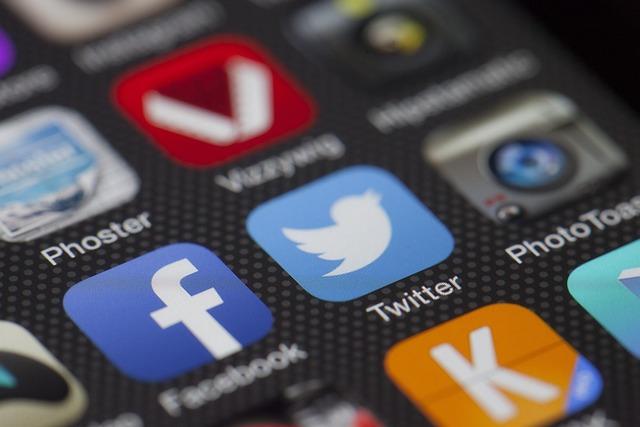The Hidden Impact of Social Jetlag on Athletic Performance
In the realm of athletics,the pursuit of peak performance drives athletes to investigate various elements that influence their capabilities. A recent investigation featured in Frontiers in Sports has unveiled an unexpected factor: social jetlag. This condition arises from a discrepancy between an individual’s internal biological clock and their external social obligations, proving to be harmful not only to overall health but also specifically affecting the jumping abilities of sub-elite volleyball players. As these competitors aim for excellence on the court, researchers are emphasizing the importance of recognizing how irregular sleep patterns and lifestyle choices can impact performance. This pioneering research underscores the critical need for both players and coaches to comprehend and address social jetlag’s effects, ensuring that achieving athletic greatness involves not just skill advancement but also optimal rest and recovery.
Defining Social Jetlag and Its Effects on Athletic Performance
Social jetlag occurs when there is a misalignment between an individual’s natural circadian rhythms and their societal schedule. This phenomenon has been shown to affect numerous aspects of athletic performance, particularly in sports like volleyball where agility and jumping prowess are essential. Studies indicate that sub-elite athletes experiencing this disruption may face declines in physical capabilities, which can lead to underwhelming performances during competitions.The consequences include prolonged recovery times, diminished energy levels, and heightened injury risks—all factors that impede effective jumping.
An analysis focused on volleyball players has revealed notable links between social jetlag and key performance indicators such as jump height as well as agility metrics. Noteworthy findings include:
- Reduction in Jump Height: Athletes suffering from chronic social jetlag demonstrate a significant decrease in maximum jump height.
- Heightened Fatigue Levels: Disrupted sleep cycles contribute to increased fatigue levels which adversely affect overall athletic output.
- Slower Reaction Times: An unaligned biological clock results in delayed response times—critical for success in fast-paced sports like volleyball.
The following table illustrates key statistics observed among sub-elite volleyball players affected by social jetlag:
| Athlete Group | Averaged Jump Height (cm) | Energized Levels (1-5 scale) |
|---|---|---|
| No Sleep Disruption | 65 | 4.5 |
| Suffering from Social Jetlag |
Investigating Sleep Patterns’ Impact on Volleyball Jumping Skills
The latest studies reveal a compelling connection between sleep habits and athletic efficiency—especially within volleyball contexts where explosive movements are vital. Athletes frequently encounter fluctuations in sleep due to inconsistent daily routines—a situation commonly termed associal jetlag . Such disruptions can disturb circadian rhythms leading to adverse effects on crucial skills like vertical jump ability; even slight reductions could considerably hinder performance during pivotal match moments.
A study focusing specifically on sub-elite volleyball athletes assessed how varying sleep patterns influenced vertical jump outcomes. Results indicated that those maintaining regular sleeping schedules outperformed peers with erratic sleeping habits significantly better than those with irregular patterns did; key insights included:
- Enhanced Vertical Leap: Players adhering strictly to consistent sleep schedules showed marked improvements in vertical leap measurements .< / li >
- Faster Reflexes: Regularized sleeping hours correlated positively with quicker reflexes during gameplay.< / li >
- Quicker Recovery Rates: adequate rest facilitated faster recovery periods post-exercise.< / li >
< / ul >Sleep Routine< / th > Average Jump Height (cm)< / th > Reaction Time (ms)< / th > tr > < td style= "text-align:left;" >< b Consistent< b >< td style= "text-align:center;" >>65 180 tr > < td style= "text-align:left;" >< b irregular< td style= "text-align:center;">58 >210 tr > < tbody >
Tactics To Reduce Social Jet Lag For Enhanced Athletic Performance h2 >
Tacklingthe repercussionsofsocialjet lagis essentialforimprovingathleticperformanceinexplosive sportslikevolleyball.Amongthemosteffectiveapproachesis
- Createaroutinebysettingconsistentbedtimeandwakeup timeevenonweekends; li />
- Createasleep-friendlyenvironmentbyreducinglightandnoise; li />
- Avoidstimulantslikecaffeinebeforebedtime;< li />
< ul />
Additionally , optimizingdietarychoicescanfurtherenhanceenergylevelsandrecovery.Nutritionaltimingplaysanimportantroleespeciallyduringtrainingorcompetitiontimes.Workingwithasportsnutritionisttoformulatepersonalizedmealplansalignedwithtrainingcanboostoverallperformance.Keycomponentsinclude:< p />>Timing< th /> tr > >Post-workoutformusclerepair;< td /> >Throughoutthedaytomaintainfluidbalance;< tbod y /> table conclusion Insights And Conclusions
The findingsfromthestudyfeaturedinthejournalFrontiershighlighttheprofoundimpactofsocialjetlagonathleticcapabilitiesamongsub elitevolleyballplayersparticularlyregardingtheirjumpingskills.Asathletesjugglevariousdemandsfromtrainingcompetitions,andpersonalcommitmentsgraspingthephysiologicalandpsychologicaleffectsassociatedwithdisruptedrestpatternsbecomesimperative.Fortheseinsightsnotonlyunderscorethenecessityofbalancedrestschedulesforaspiringcompetitorsbutalsoemphasizetheimportanceofcoachesincorporatingstrategiesaimedatmitigatingsocialjetlagsideeffects.As thesportsecosystemcontinues toevolveaddressingtherelationshipbetweenrestperformancewellbeingwillbecrucialinunlockingfullpotentialacrossalllevels.Futureinvestigationintothisfieldcouldleadtoenhancedtrainingprotocolsandhealthierlifestylesforemergingtalent.

